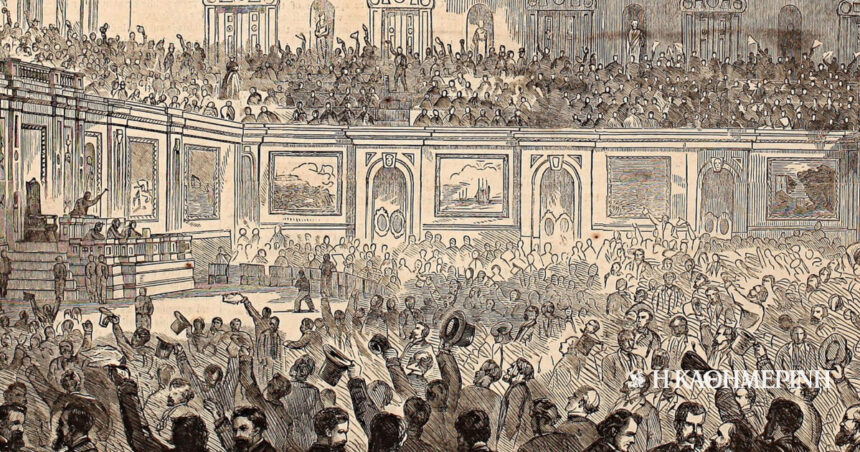OR Emancipation Proclamationwhich was signed by Abraham Lincoln on January 1, 1863, is to this day one of the major milestones in the history of United States of America. It was the first step towards the definitive abolition of slavery, a shameful institution which contradicted the liberal ideology of the country. It marked the transition to a new era for the civil war-torn country, strengthening democratic principles and helping to modernize institutions. Thus, he laid the foundation for the creation of the political and economic miracle of the following decades in the USA.
OR abolition of slavery in the United States, of course, it was not an easy task nor was it accomplished in a short time. Although slavery was almost eliminated in the Northern States as early as the beginning of the 19th century, under the presidency of Thomas Jefferson, in the Southern States it was largely an institution established in people’s lives.
During the Civil War, Lincoln believed that freeing the slaves would undermine the war effort of the South.
Initially, Abraham Lincoln did not take a clear position on the issue of the abolition of slavery – although he was against the institution – because he had reservations about the conditions under which blacks and whites would coexist in the country. During the civil war, however, he changed his attitude, considering that the liberation of the slaves would undermine the military operations of the South. Then he decided to publish the Emancipation Proclamation, which provided, in short, the liberation of the slaves in the areas that were under the control of the South.
In the following period, the Lincoln administration took appropriate institutional measures to abolish slavery in the country. In April 1864, the Senate passed the 13th Amendment, which “neither slavery nor involuntary compulsion shall exist in the United States or in any territory under their control, except as a punishment for a crime, of which the person concerned shall have been lawfully convicted». The passing of the Amendment by the House of Representatives, however, was delayed for many months. It finally happened on January 31, 1865, and the next day Lincoln signed its final text.
Lincoln’s assassination a few months later, in April 1865, did not prevent the amendment from being implemented later that year. When the 13th Amendment took effect on December 18, 1865, the scope of the Emancipation Proclamation of 1863 was expanded to include the entire American nation. A new era has dawned for the USA. In 1866 Congress passed the Civil Rights Actwhich guaranteed American citizenship and equality under the law for blacks, but not the right to vote. It took some time before all Americans were considered equal.
Column editor: Myrto Katsigera, Vassilis Minakakis, Antigoni-Despina Poimenidou, Athanasios Syroplakis




